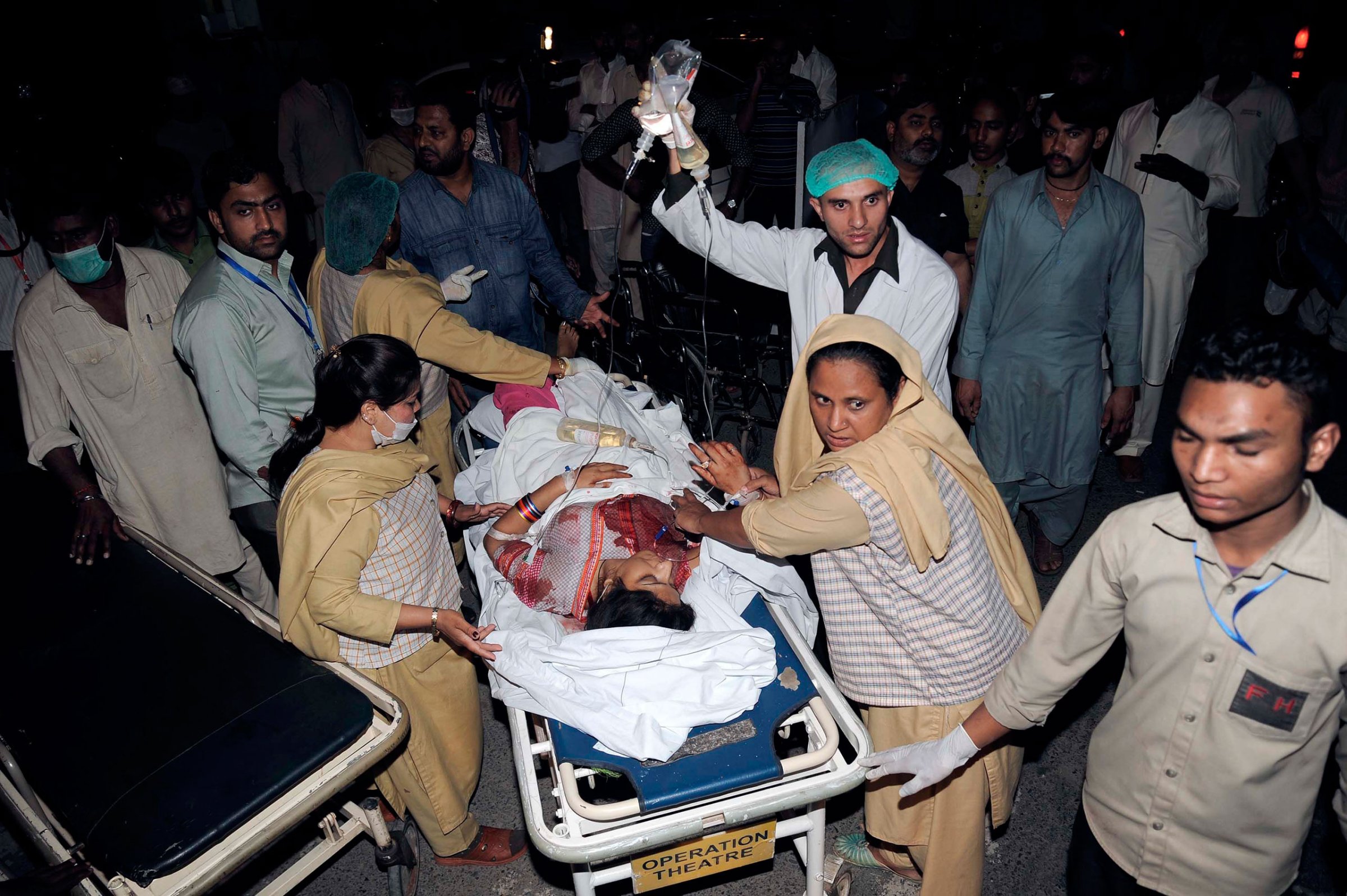
When 12-year-old Ali Abbas Nizamani boarded the 18-hour train from Pakistan’s southeastern Sindh province to the capital of the Punjabi heartland, Lahore, he thought he was embarking on an adventure. He had begged his father to take him on the jhoolas, or swing sets, at Lahore’s Gulshan-i-Iqbal Park. The plan was to spend three to four days enjoying the city, away from their Tando Soomro village in northwest Sindh.
But instead, 42-year-old Sakhawat Nizamani spent Sunday night wresting his son Ali’s dead body from the swing set in the park. A suicide bomber belonging to a faction of the Pakistan Taliban had detonated his explosives close to where many children were playing, killing at least 70 people and injuring 300. Nizamani’s two other sons were among those injured in the blast.
The attack coincided with the Christian community’s Easter Sunday and many Christian families were celebrating the holiday in the park after attending church services. Jamaat-ul-Ahrar, the Islamist militant group who took responsibility for the bombing, declared it an official attack on Pakistan’s 2.5 million-strong minority Christian population.
Read More: Lahore Easter Bombing Shows Pakistan’s Fight Against Extremism Is Far From Over
On Monday, the Nizamani family gathered in an emergency ward of Lahore’s Jinnah Hospital, a bouquet of flowers from Prime Minister Nawaz Sharif placed on the table. Nearby, dazed patients sat upright in their beds in front of white signs labeling them “blast victims.”
“This is our naseeb [fate]” the father muttered, a shock of black curls flowing from his chin. Nizamani was too consumed with trying to rescue his children after the blast that he barely noticed a chunk of shrapnel had lodged into his own elbow. He sat cradling his left arm, which was covered in white gauze. “We don’t blame the government,” he told TIME. “This is a test by God, but this episode is not against Christians. This is against all of humanity.”
Across the room, Nizamani’s 15-year-old son Fazeel watched his father speak. Fazeel’s two feet were splayed on the hospital bed, his face slack-jawed and body immobile. Friends wearing prayer caps huddled around him, offering the boy prayers for his deceased brother. In another room, Fazeel’s 9-year-old brother Rohail was being X-rayed for spinal injuries after he had fallen from the swings. As Nizamani reached his wife on a cell phone, her cries could be heard.
Witness the Aftermath of the Pakistan Park Bombing
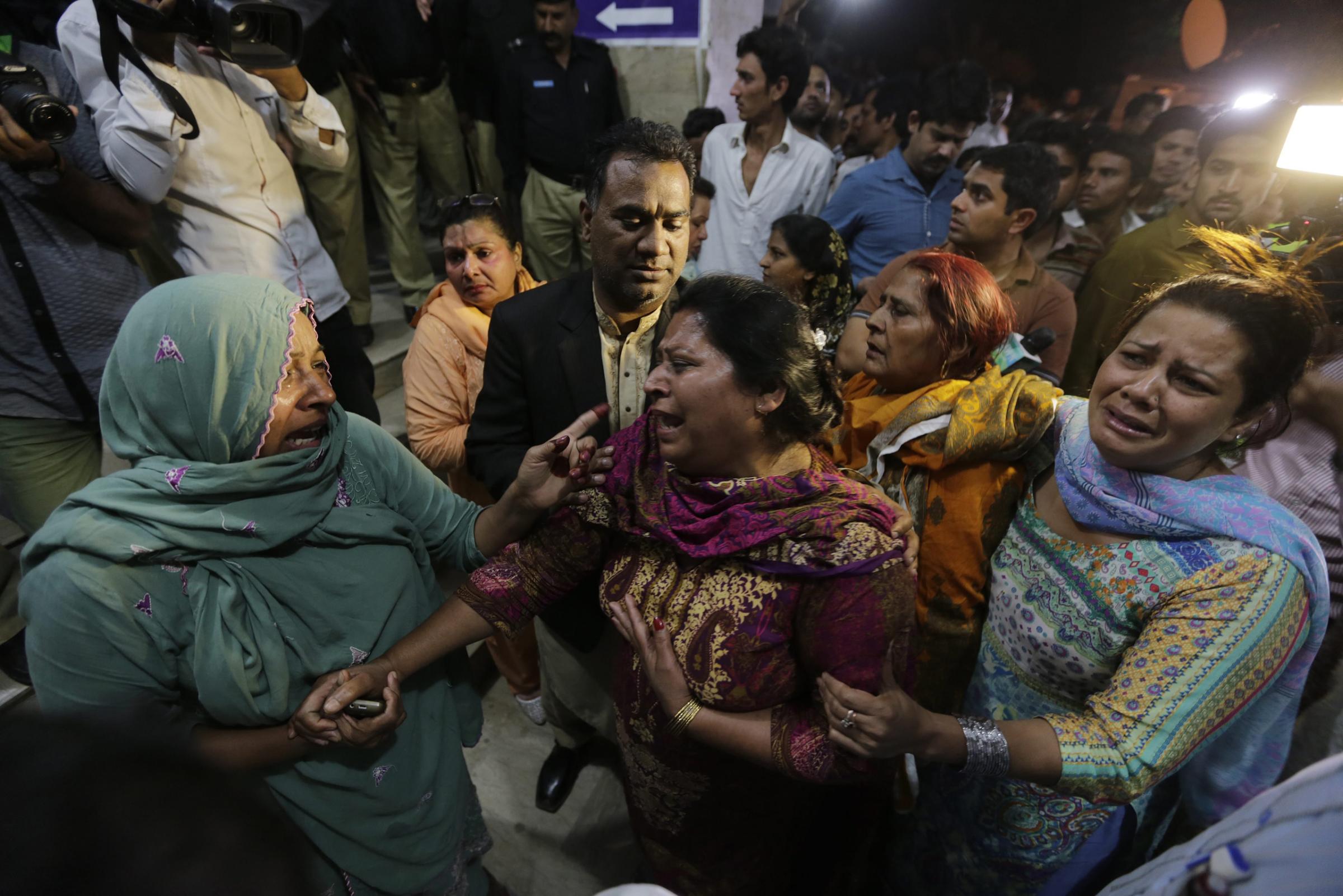
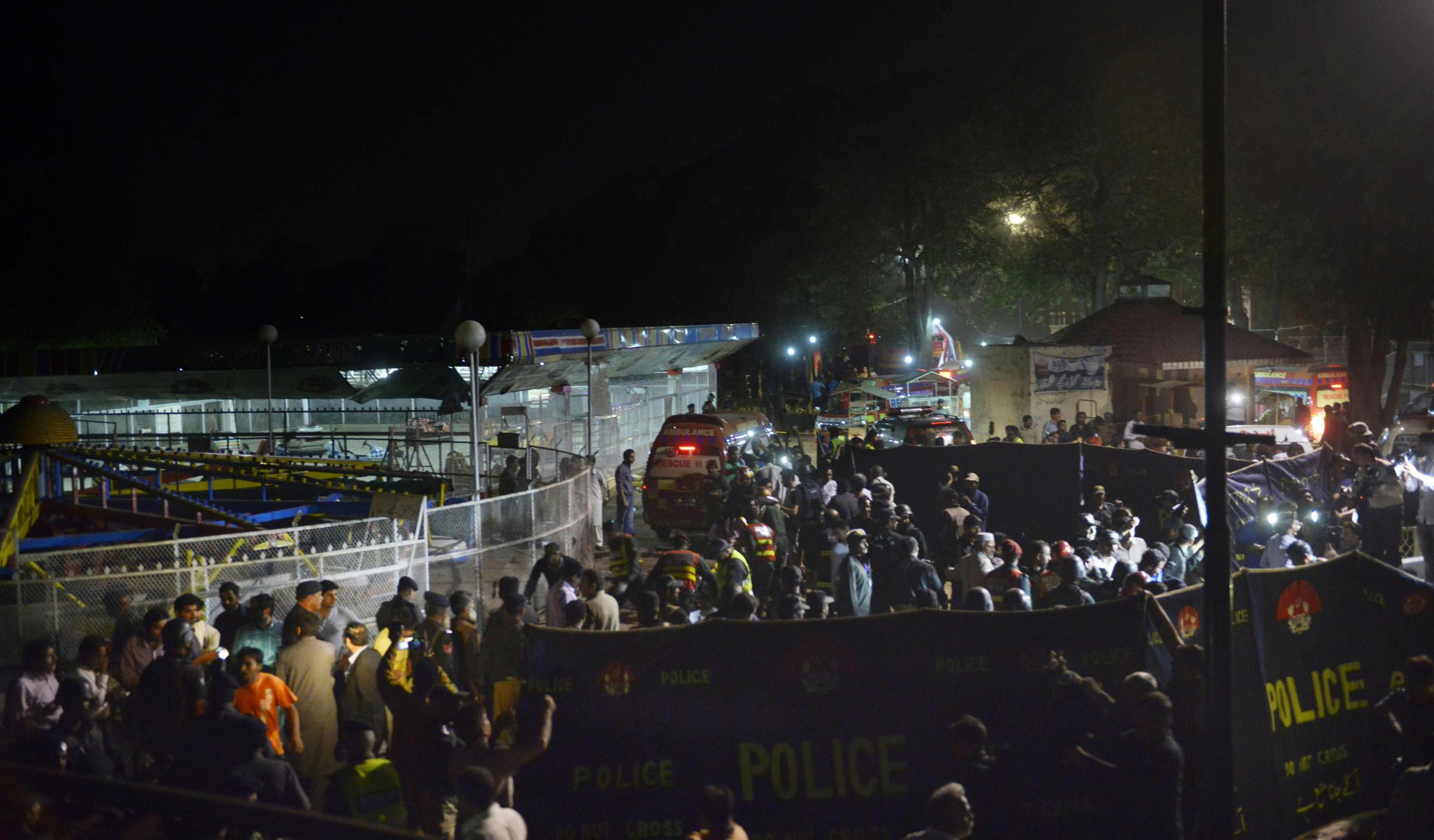
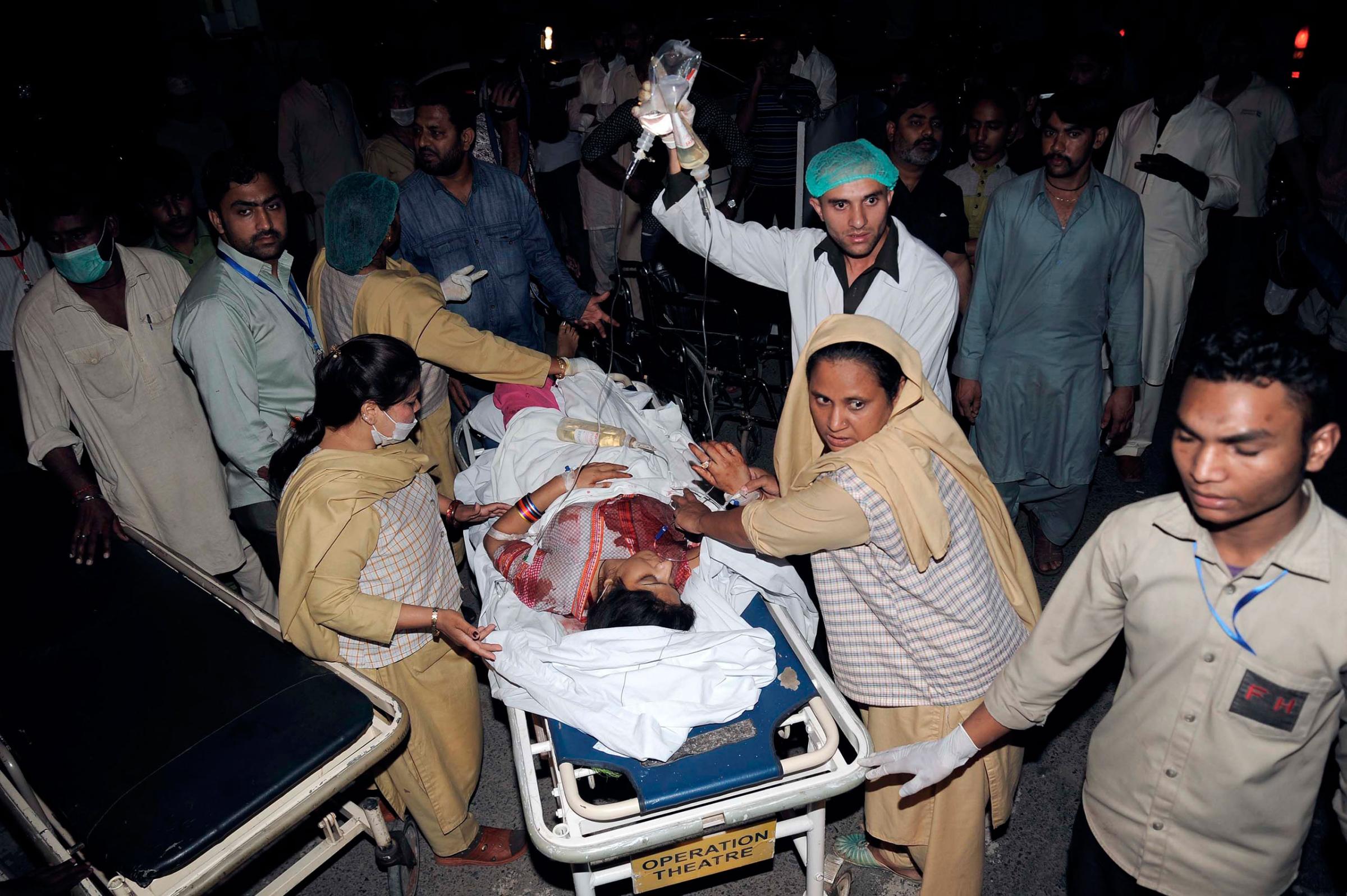
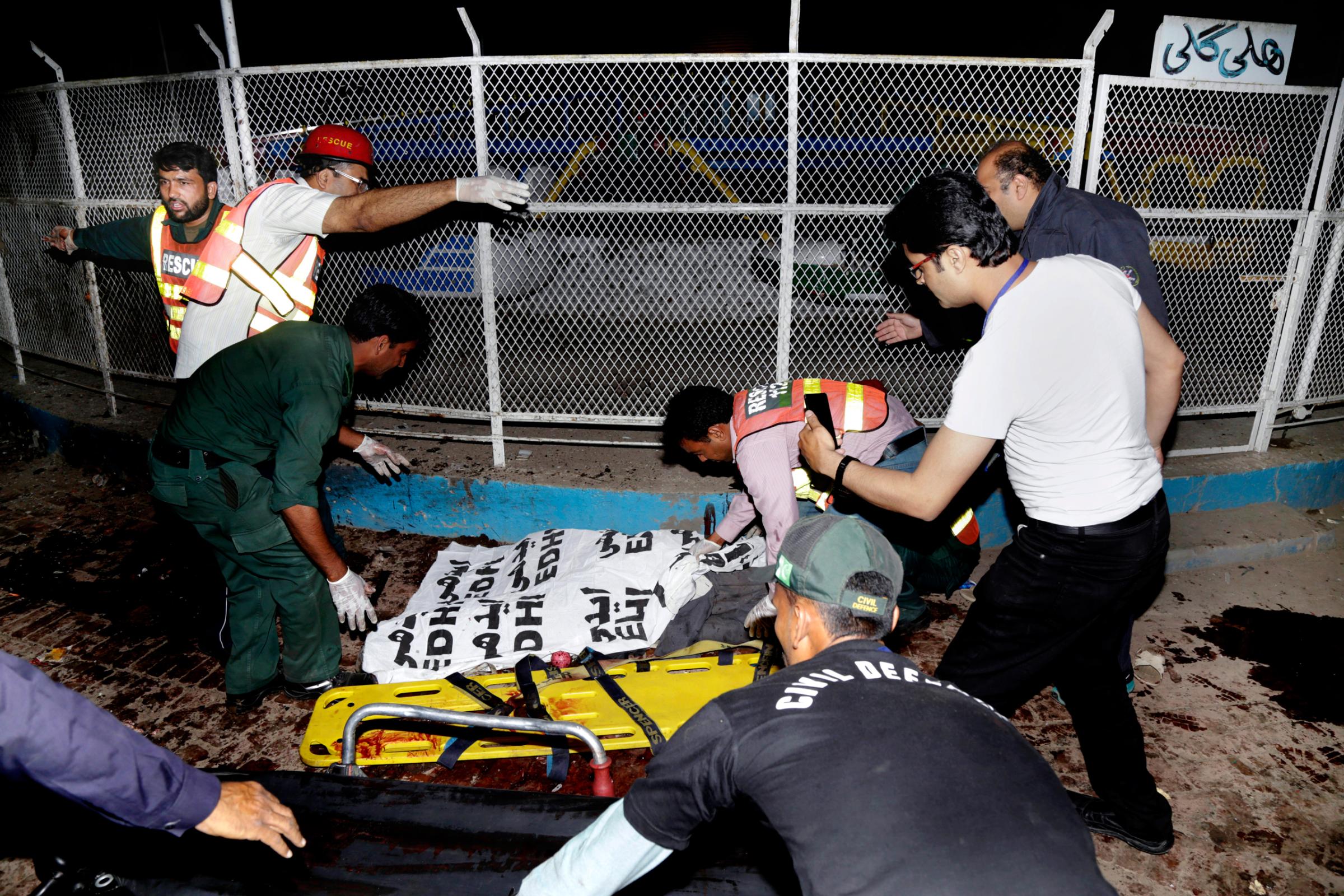
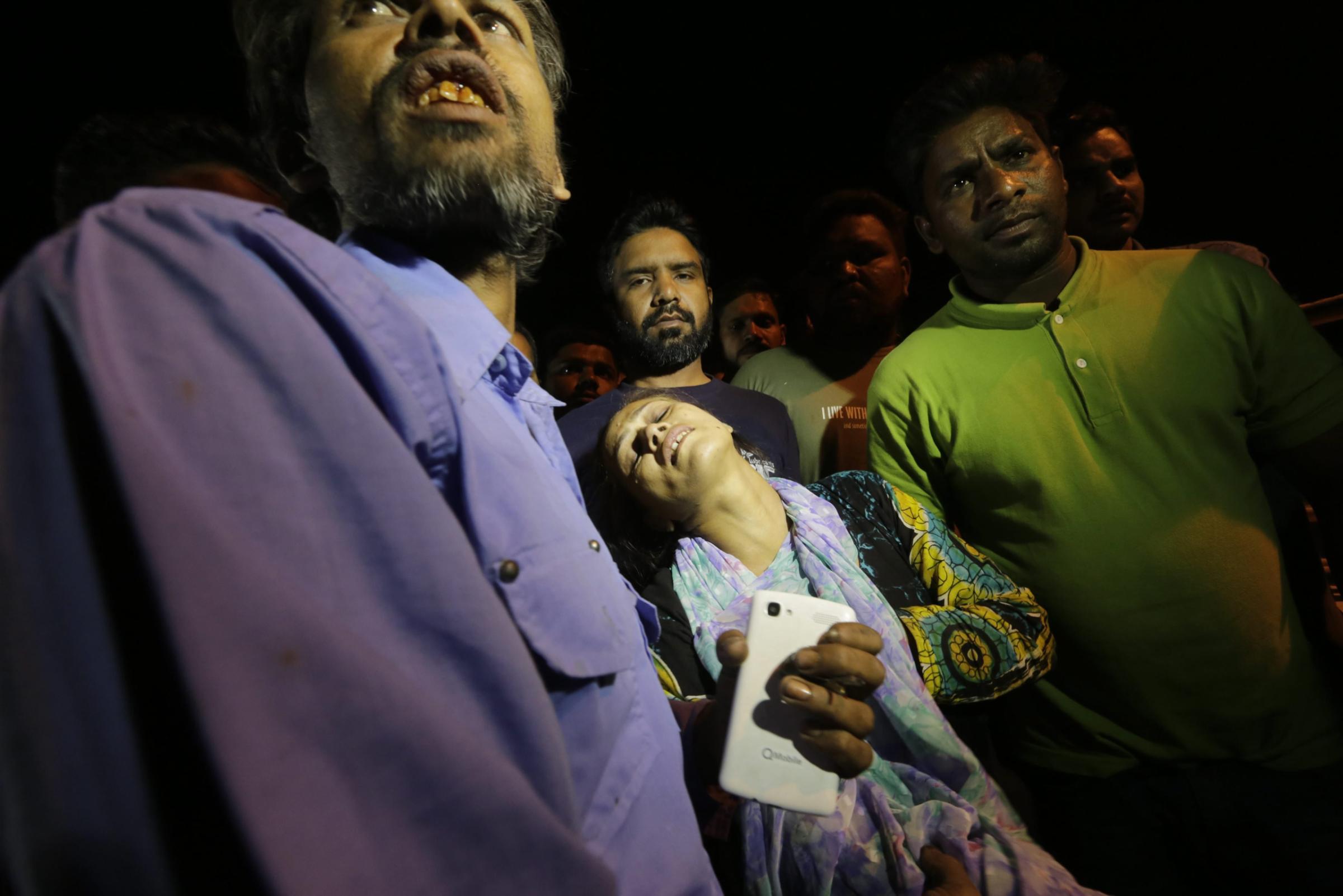
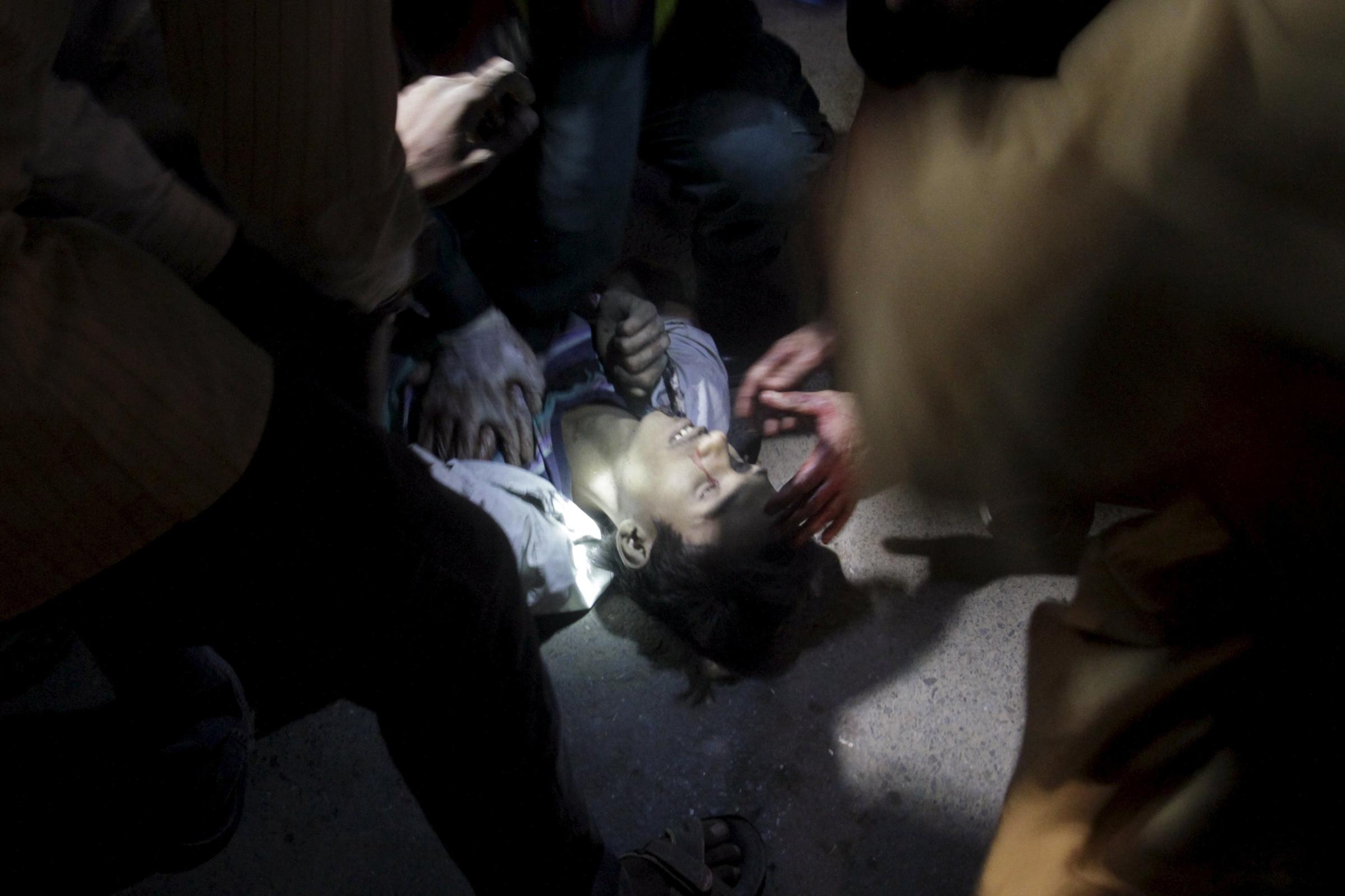
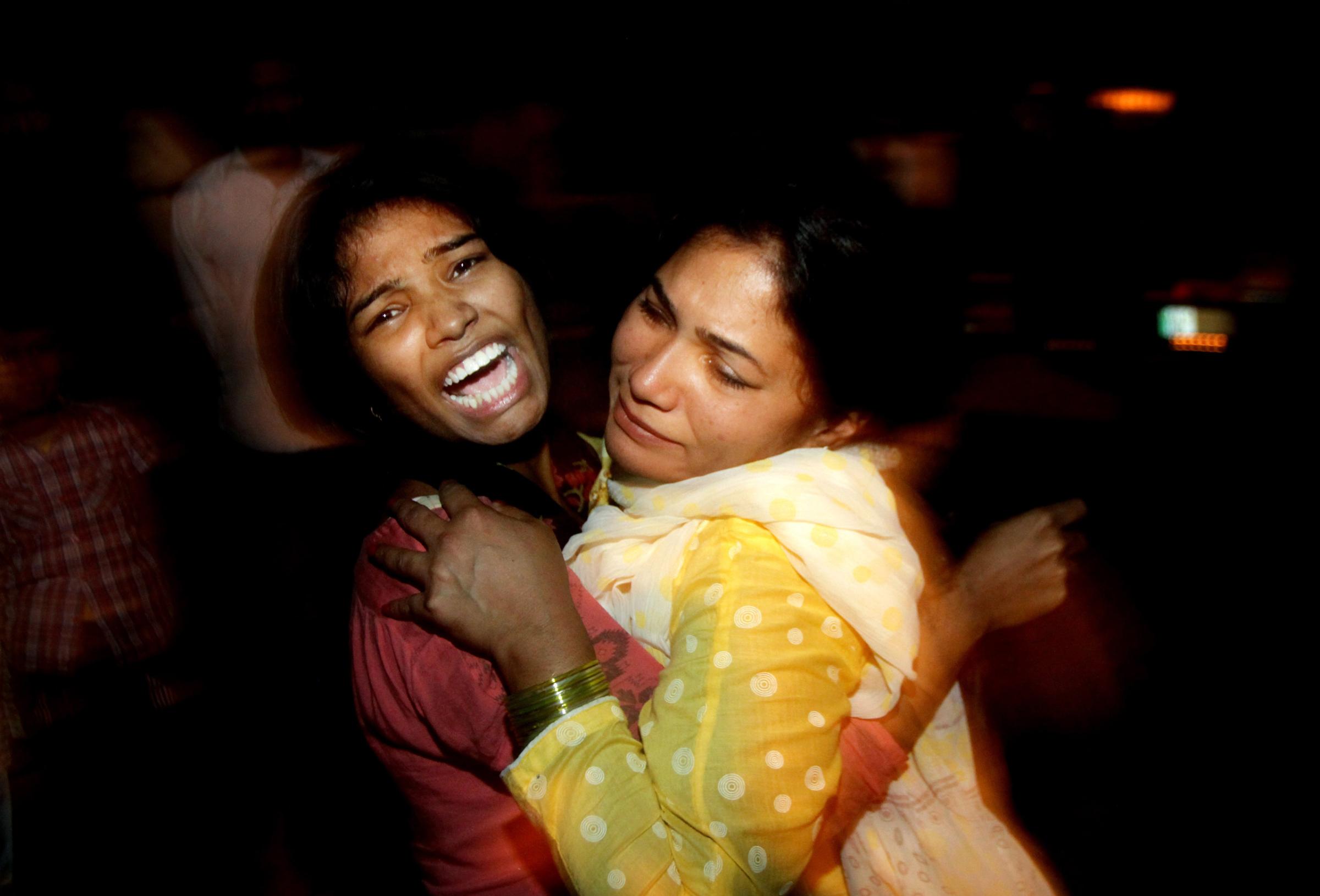
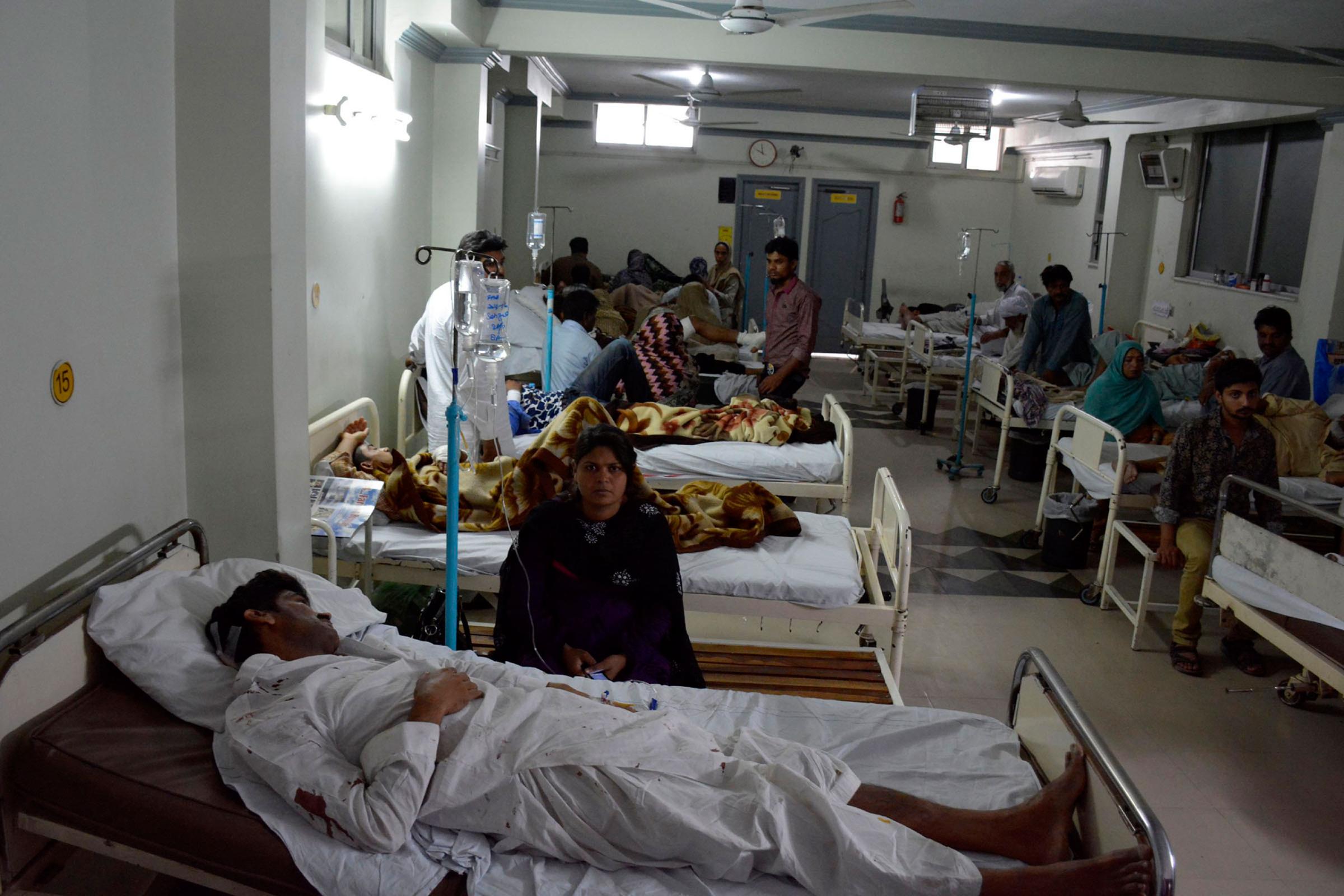
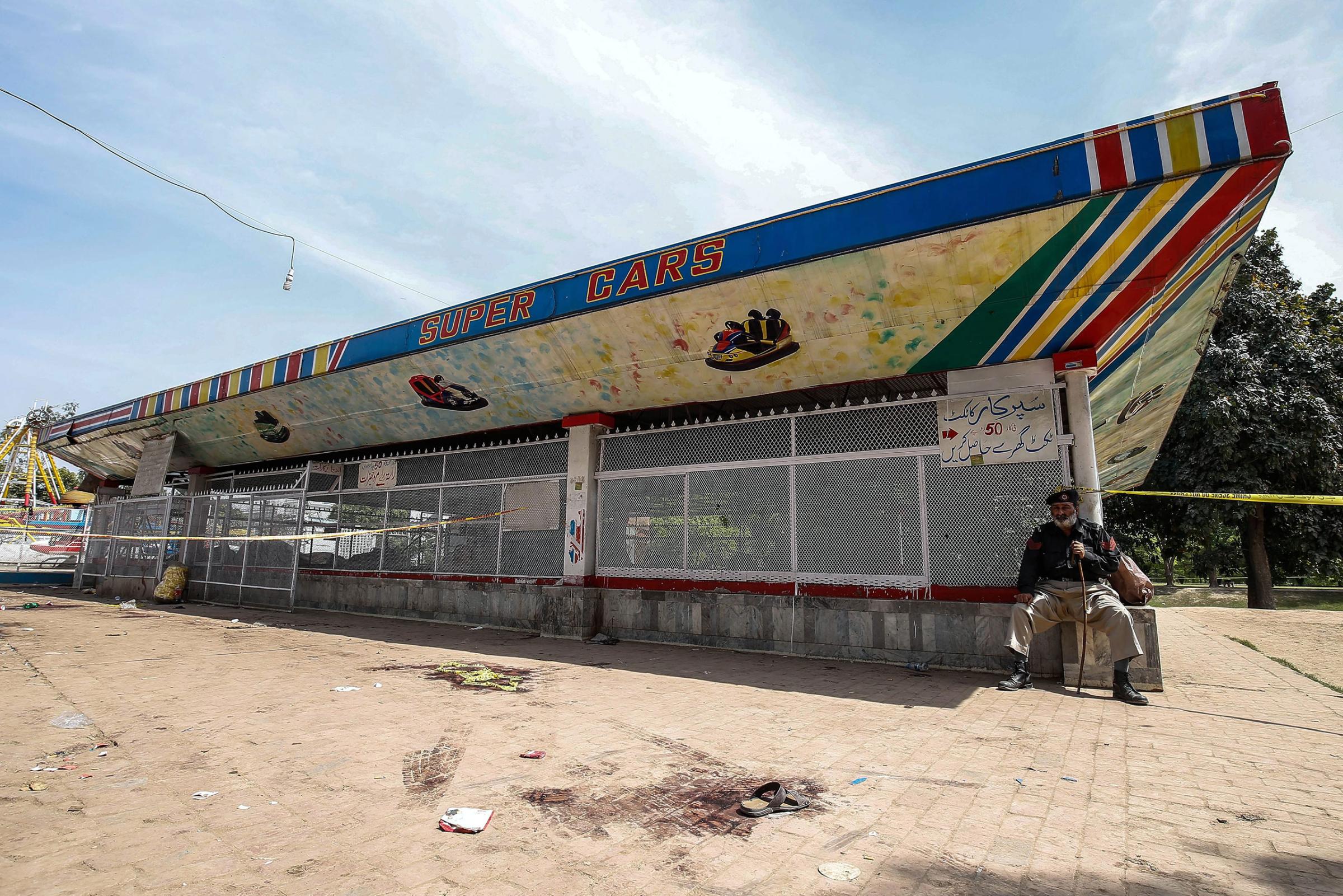
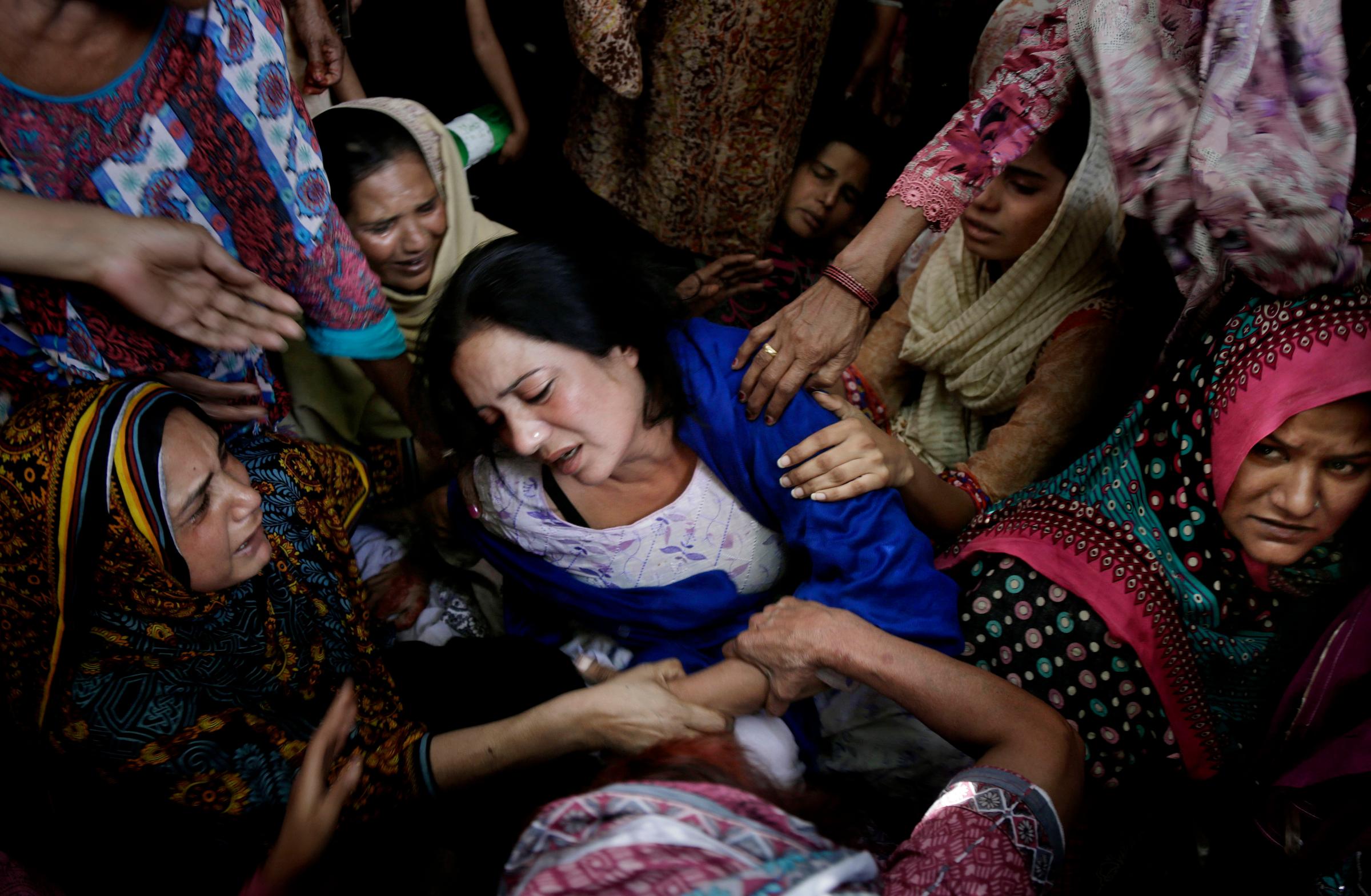
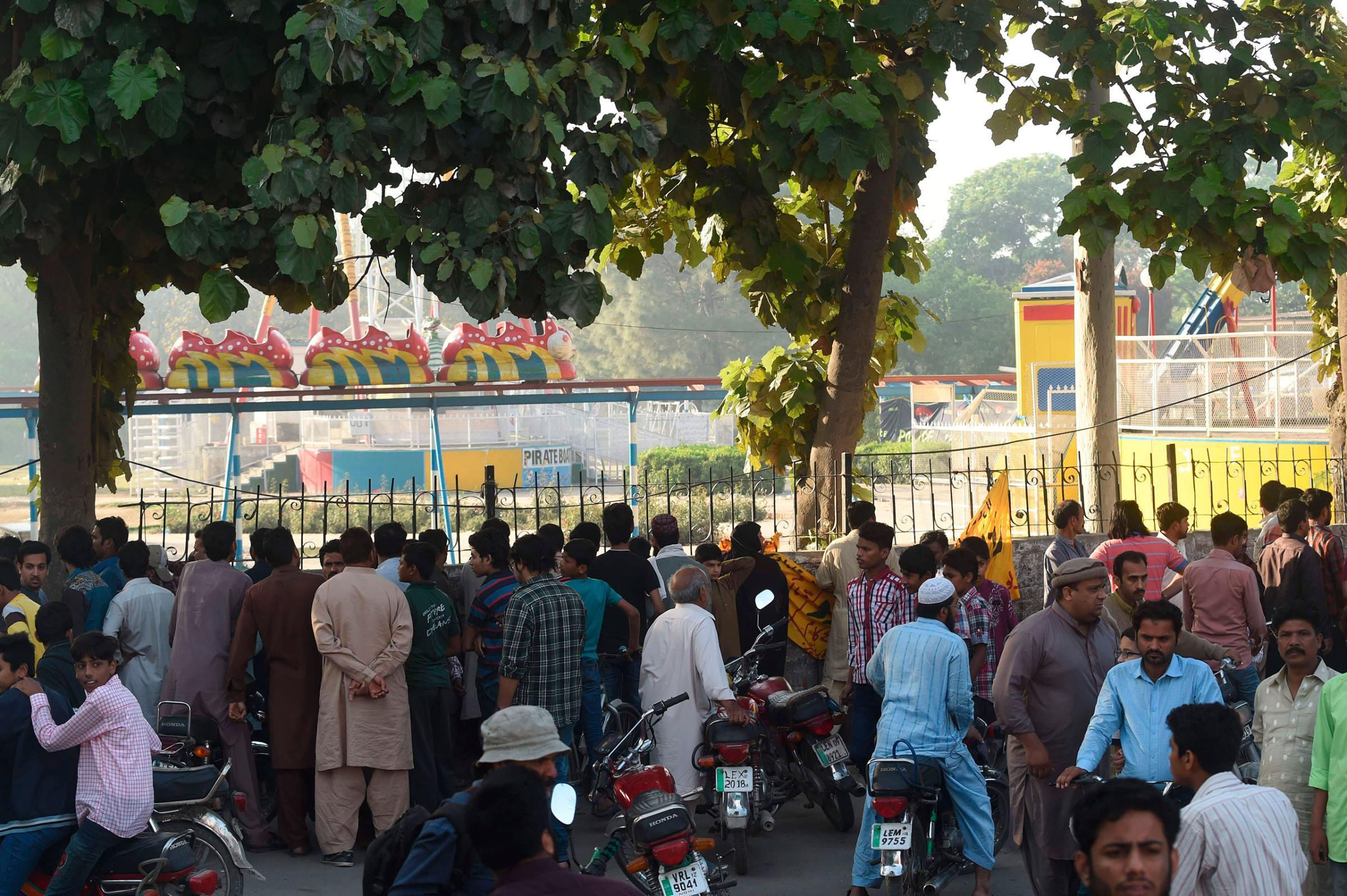
For eyewitnesses of Sunday’s bombing, the attack appeared to be a deliberate attempt to drive a wedge between a beleaguered Christian population and a Muslim majority weary of terrorist and sectarian attacks on soft targets, from schoolchildren to public institutions. For rickshaw wallah Waqas Ali, 37, who felt the ground vibrate beneath his vehicle as blood-spattered women and children ran away from the park, there is no real division between the two communities.
“The [attackers] are not Muslims. They are not even humans. These are animals,” says Ali, who spent Sunday night crying with bereft mothers mourning their children. “I eat side by side with Christians. They are our brothers.”
Of the dead, 14 have been identified as Christians, according to Lahore police superintendent Mohammed Iqbal, reports the Associated Press.
“[The attacks] obviously affected the Muslim community as well, but were specifically targeting the Christian community,” says Cecil Shane Chaudhry, a Pakistani Christian based in Lahore and the executive director of the National Commission for Justice and Peace.
Many at the scene blamed the local police and government for an apparent lack of security during the Easter celebrations, which drew many Muslims to the park as well as Christians. “There is no security, look at this,” says Ali the rickshaw driver, waving his hand around Gulshan-i-Iqbal park, where a handful of policemen in black vans stand sentry, swatting away onlookers snapping photos with their mobile phones.
“Yesterday’s attacks again exposes the lack of initiative from the government to really address the issues of the protection of religious minorities, knowing very well that the majority of the Christian community frequents public places on Easter and Christmas,” Chaudhry says. “It’s become a norm to assess how dangerous or safe it is to go to any place — that’s not for just Christians, it’s also for Muslims in Lahore.”

For canteen owner Abdul Wahid, who was serving food next to the park’s swing sets when the blast struck, Iqbal Town’s halcyon days were punctured by the bodies he had seen littering the street. “There were so many injuries. I picked up the bodies and limbs until the police came,” he says, thinking that his only job that night would be limited to taking orders and refilling drinks. “It is wrong this is happening. [Christians] are like our brothers and sisters.”
Others doubted the power of the state to prevent such brazen attacks, particularly in light of recent school attacks — on Jan. 20 gunmen stormed Bacha Khan University, an army school in northwest Pakistan, killing 22 people. At the emergency ward of Lahore’s Jinnah Hospital, a forlorn relative of Nizamani turned and asked, “This was a public space — how can there be public security?”
Read More: Outpouring of Sadness and Solidarity for Pakistan as World Reacts to Lahore Blast
But grieving Nizamani won’t let the attackers’ ideology of hate overshadow the memory of his beloved son.
“My hope is that we learn to respect each other,” he said, watching his son Fazeel struggle to move underneath the thin white hospital sheets.
More Must-Reads from TIME
- How Donald Trump Won
- The Best Inventions of 2024
- Why Sleep Is the Key to Living Longer
- Robert Zemeckis Just Wants to Move You
- How to Break 8 Toxic Communication Habits
- Nicola Coughlan Bet on Herself—And Won
- Why Vinegar Is So Good for You
- Meet TIME's Newest Class of Next Generation Leaders
Contact us at letters@time.com